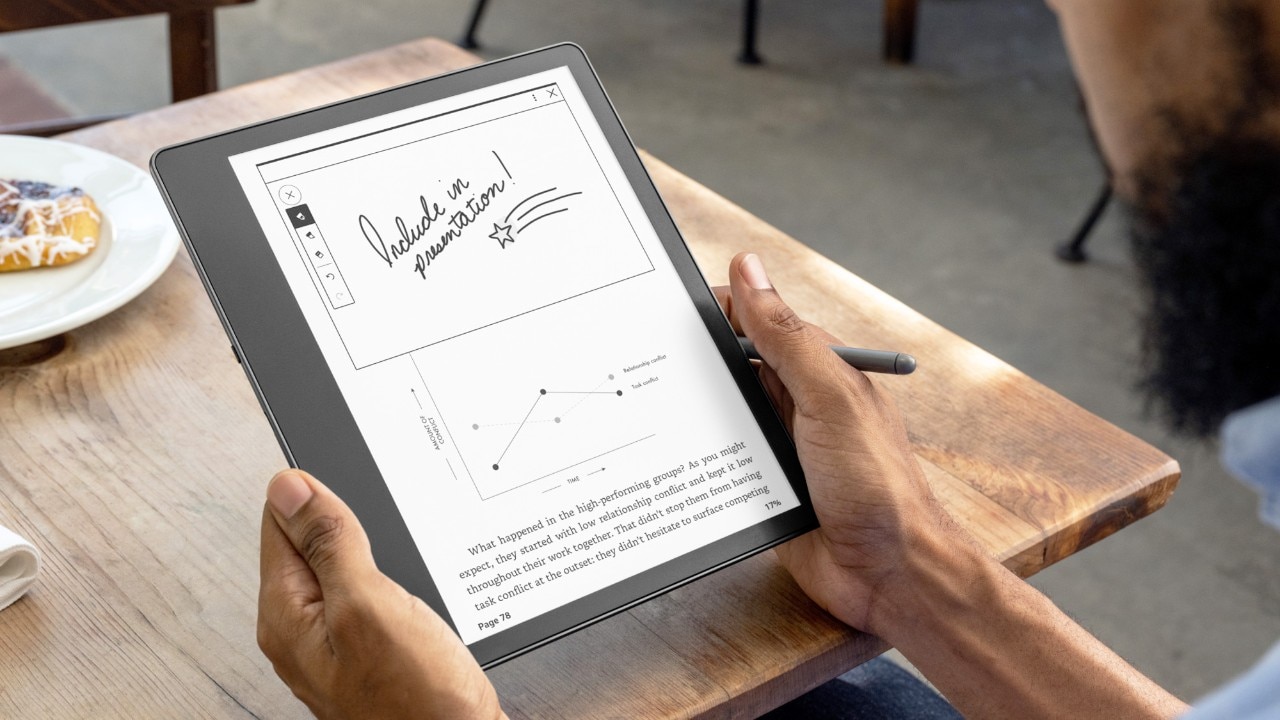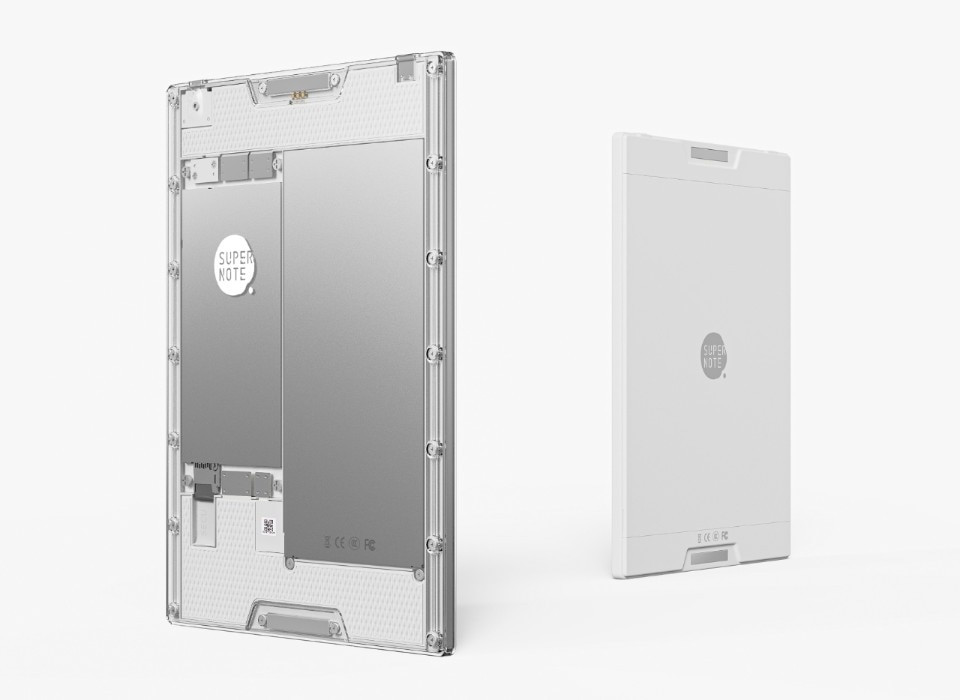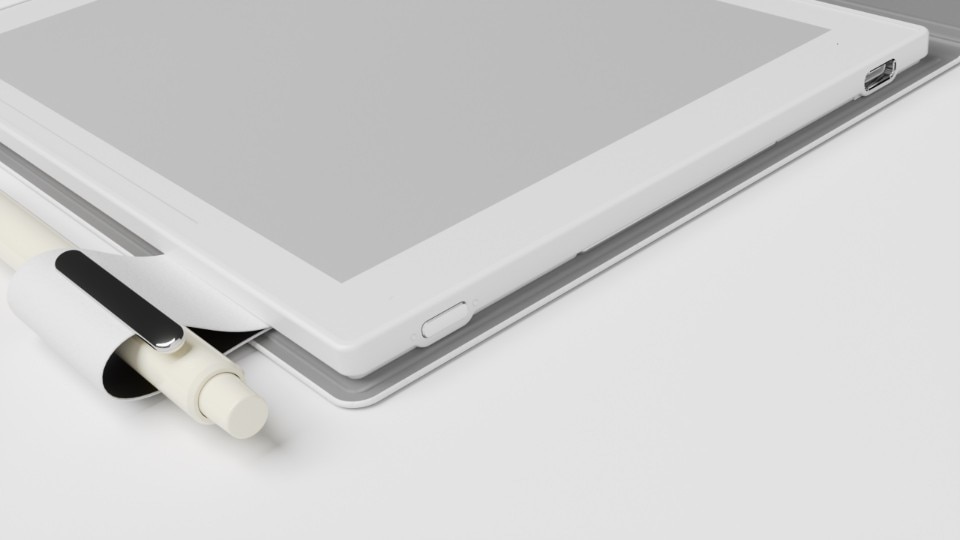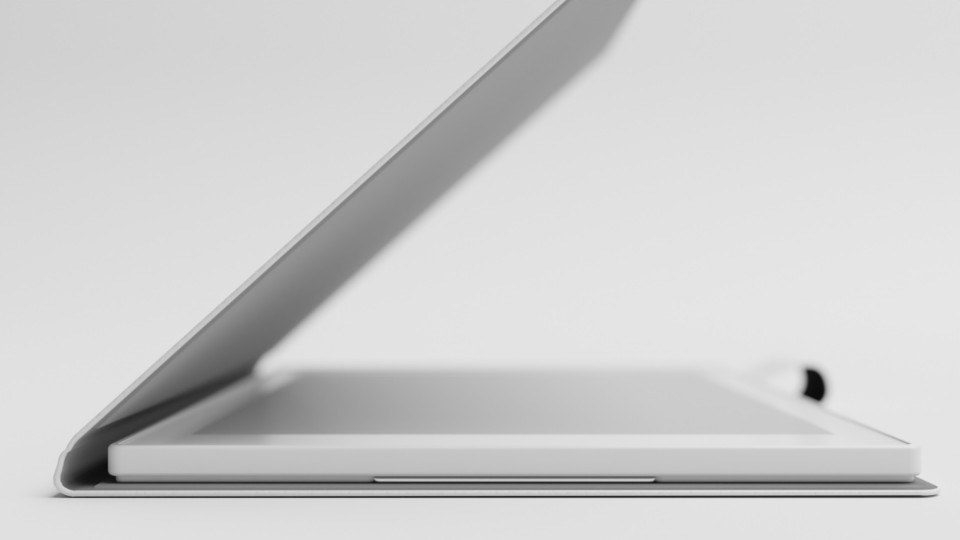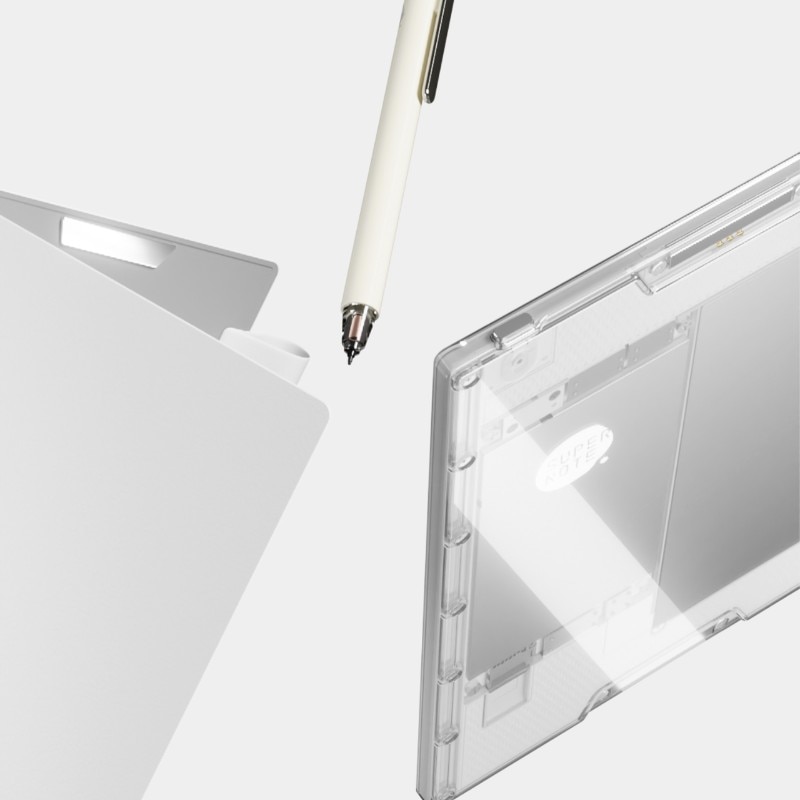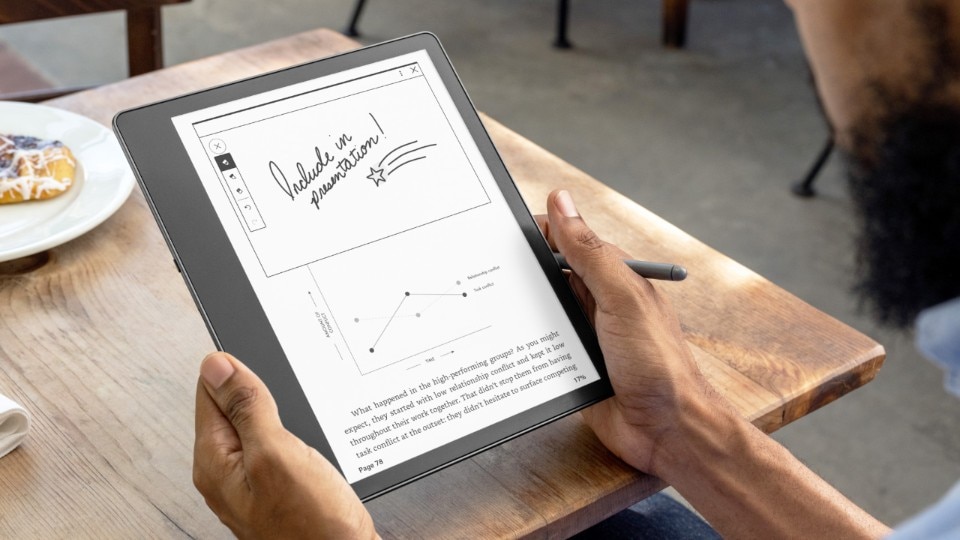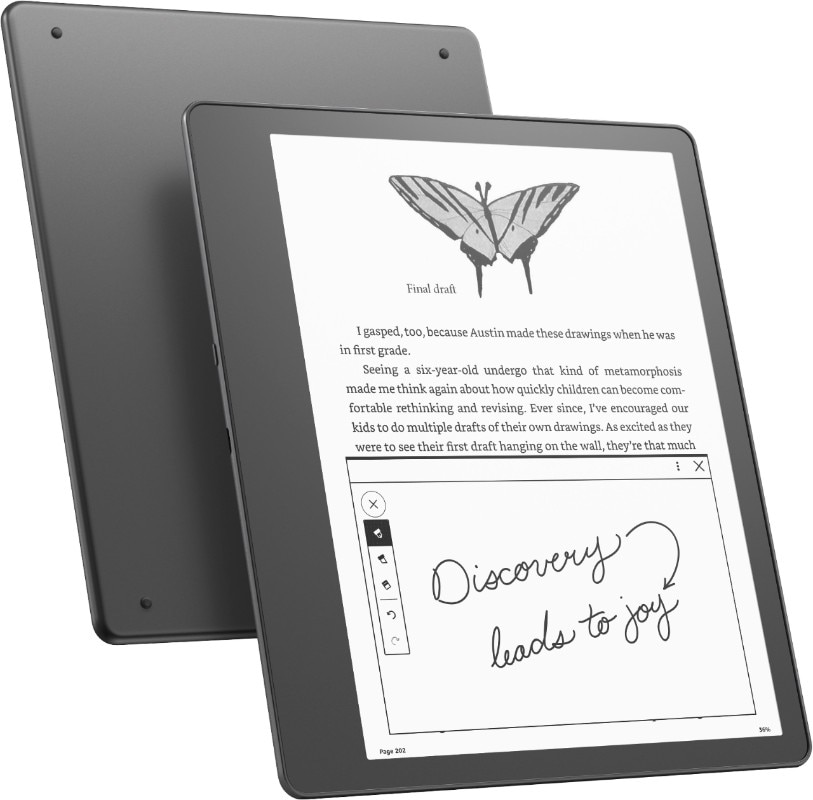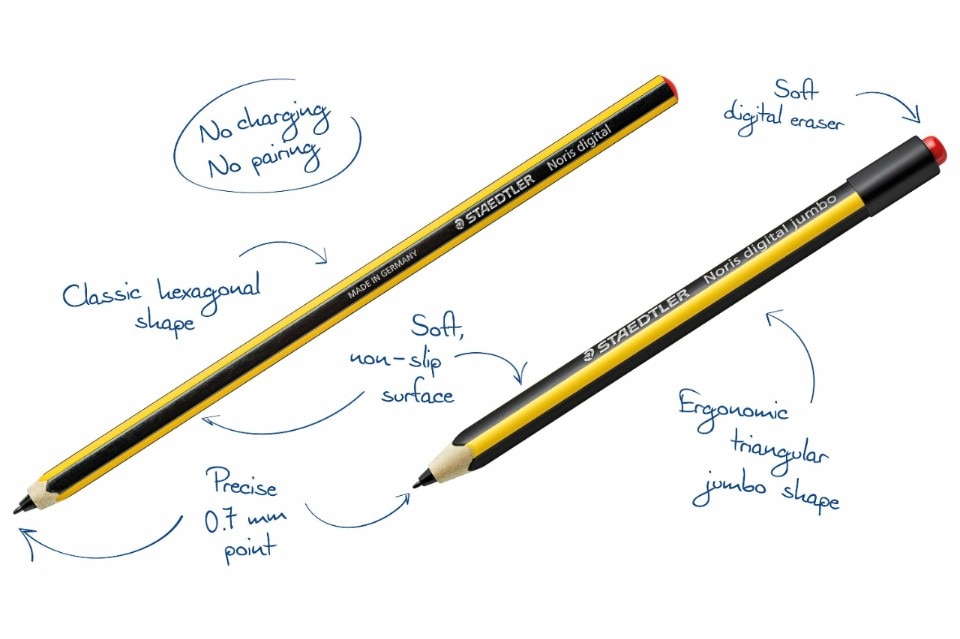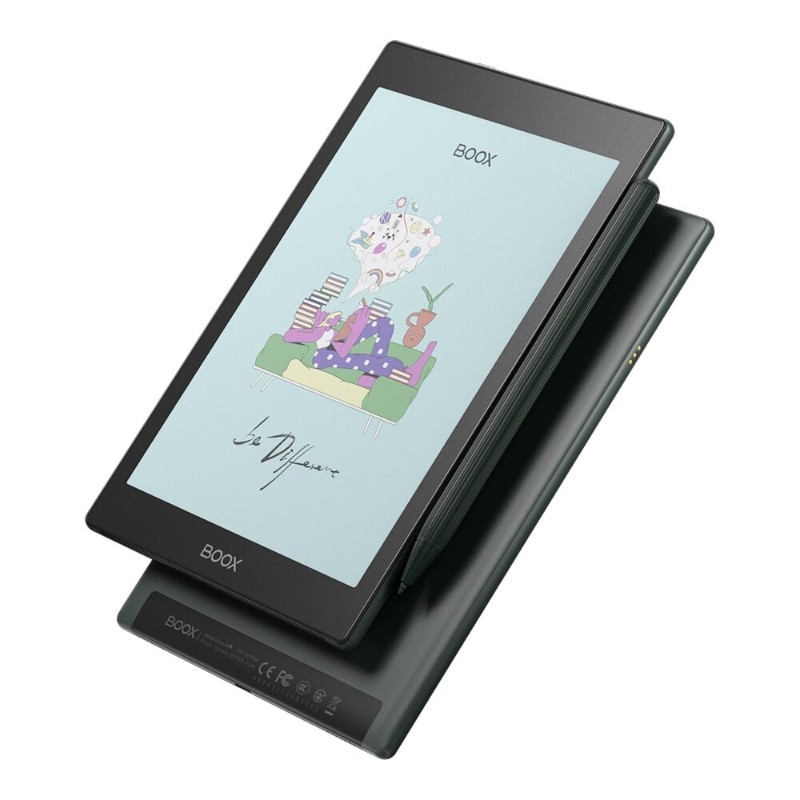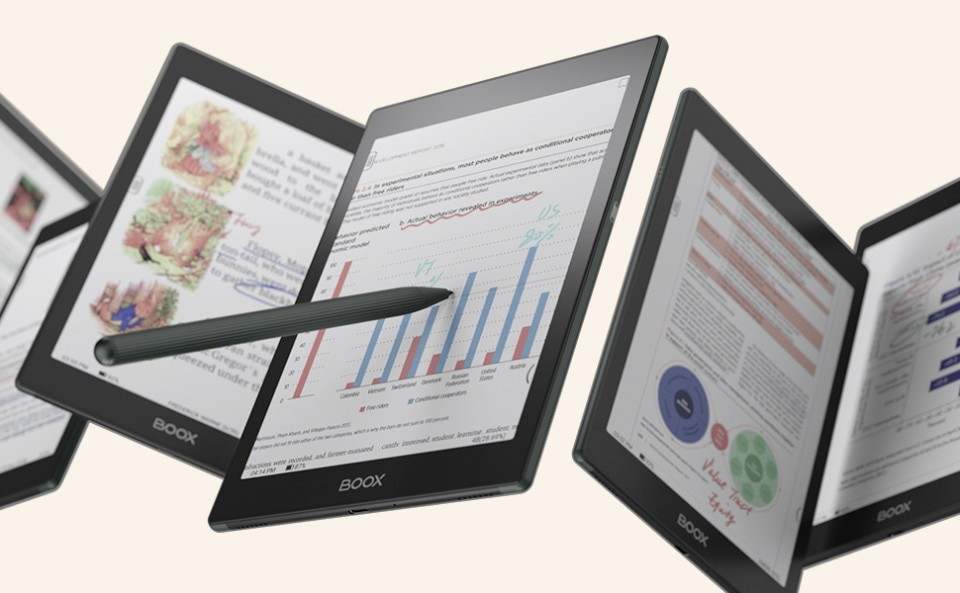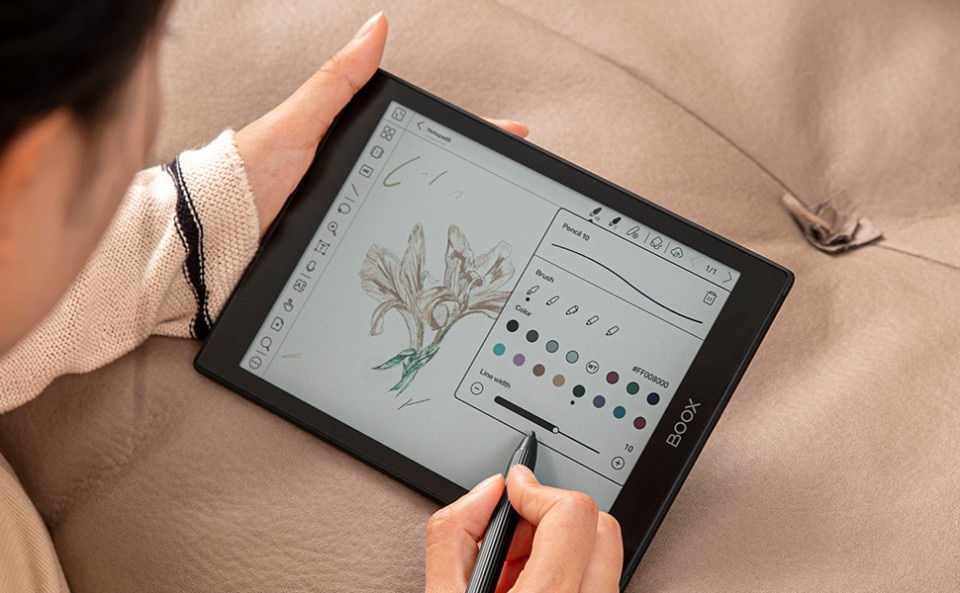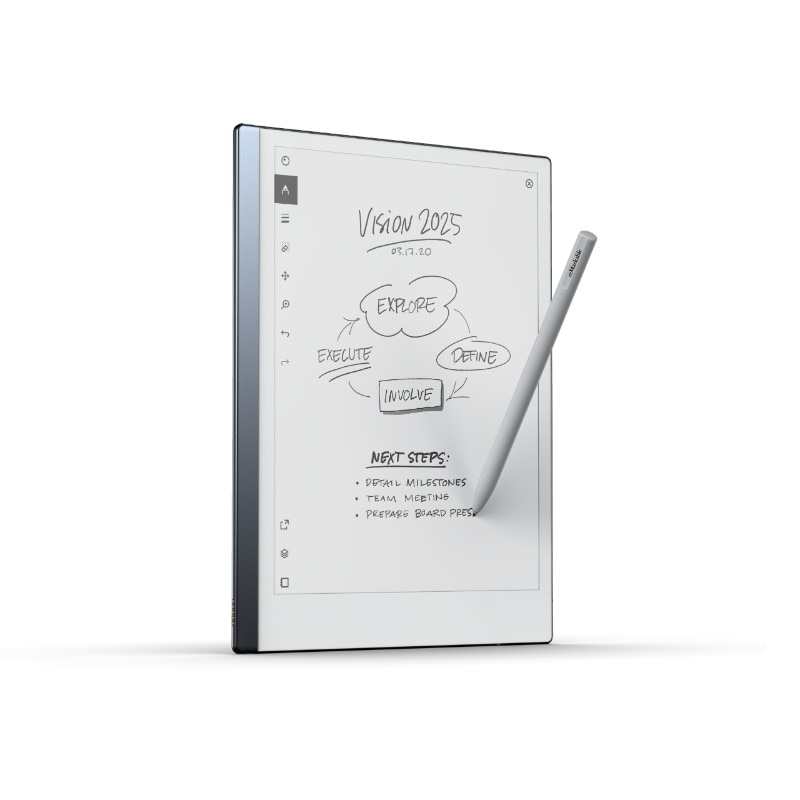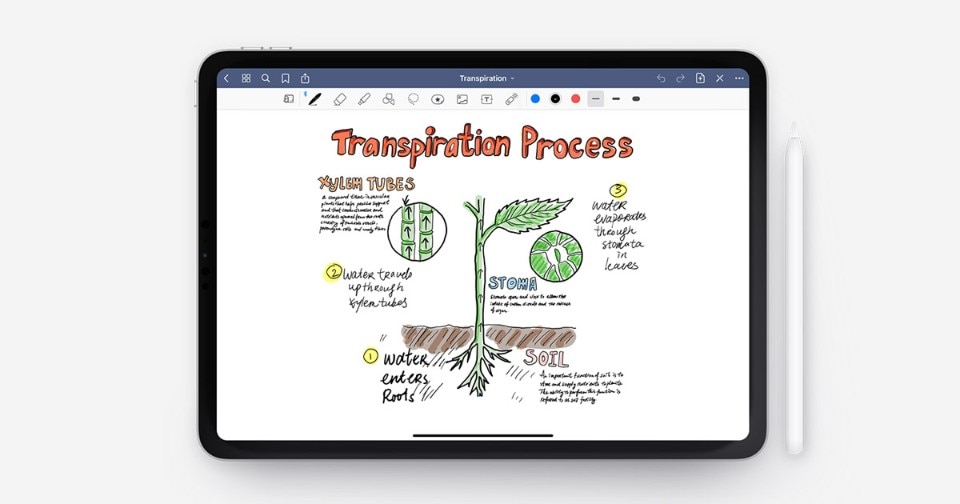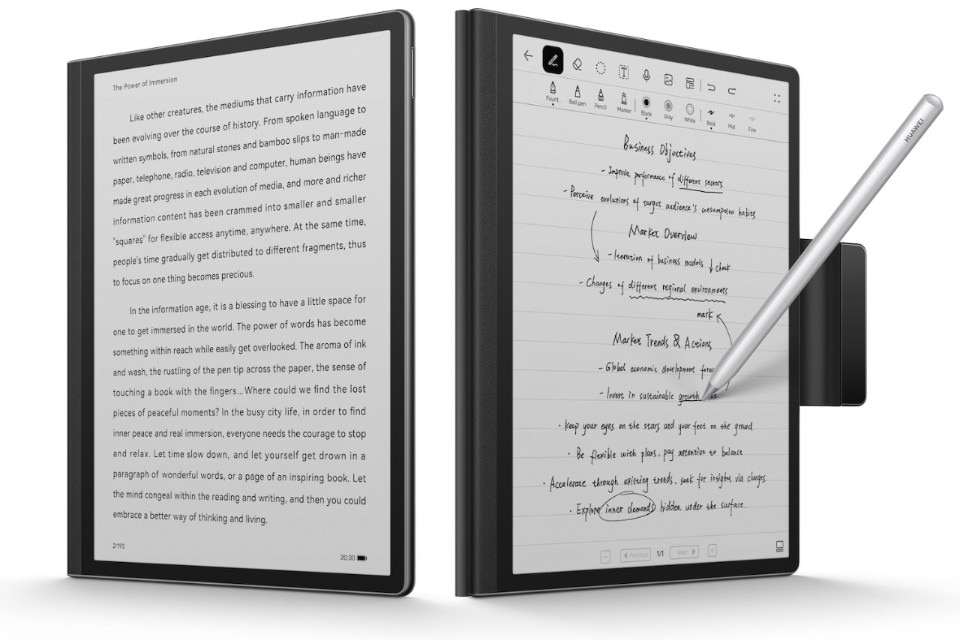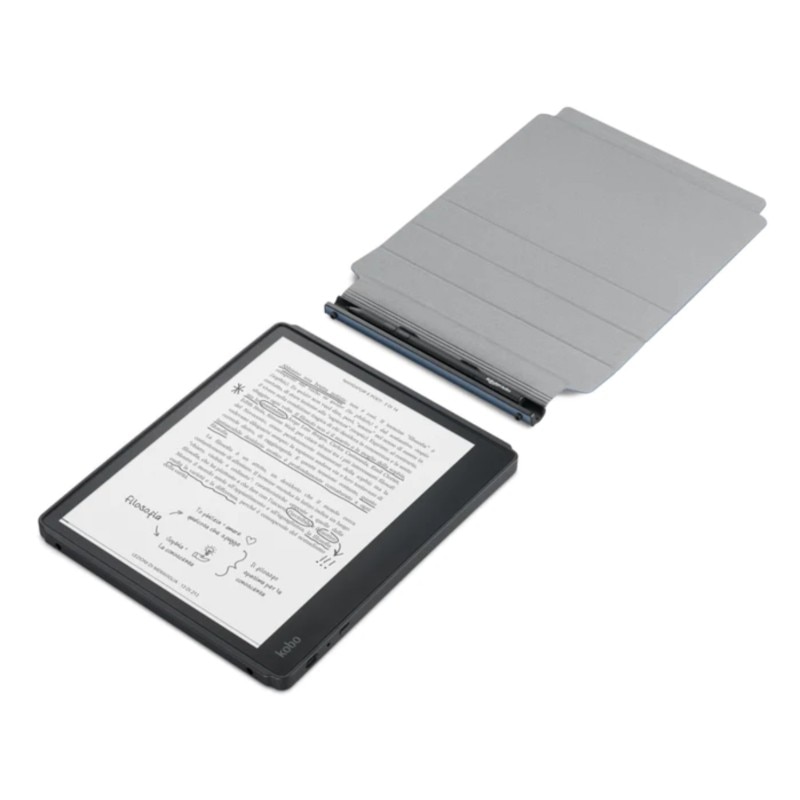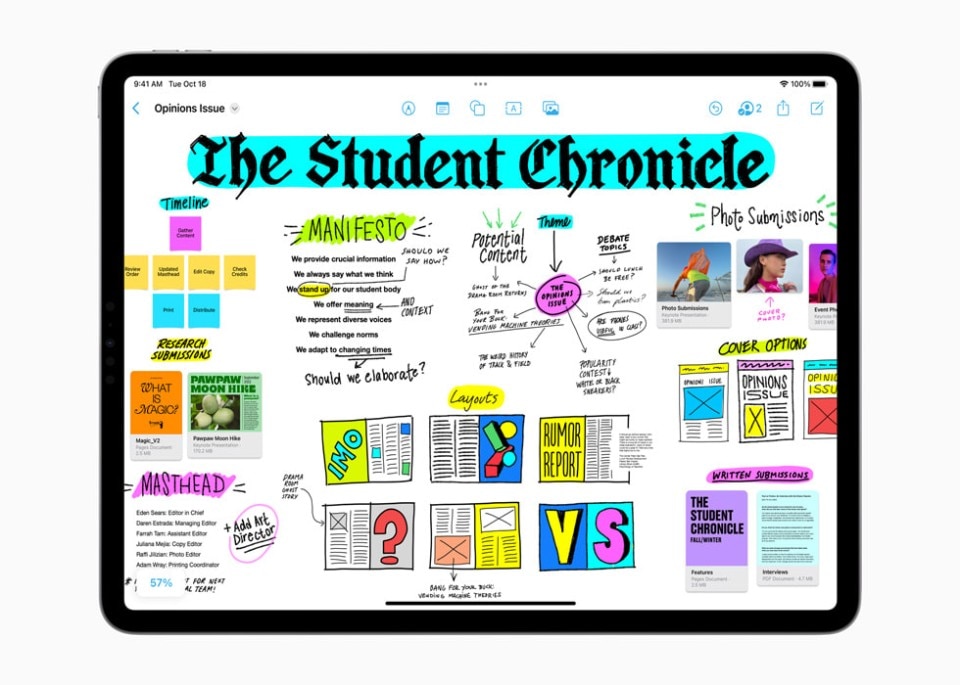“I saw the best minds of my generation taking notes on the iPhone Notes app”. In this case, paraphrasing Allen Ginsberg is not so paradoxical. The beat generation radically changed the design of writing, with William Burroughs’s experiments with the cut-up method, – the American writer has been brought back to popularity as portraied by Daniel Craig in Queer – , or Jack Kerouac’s with automatic writing – On the Road was written on a single roll of paper, in a stream of consciousness that lasted twenty days and was fueled by copious amounts of coffee and benzedrine. We are well aware of how beats influenced Milanese design – the story of Memphis is well known –, perhaps we are less aware that when we copy-paste, paste a .ppt or .xls file into a folder, or ask an intelligence like ChatGPT to write something for us – well, some did similar things, but analogically.
We've have been witnessing how new generations (and not only them) use the iPhone's Notes app as a pocketable digital notebook. On December 2022, Apple has launched Freeform, a cross-platform idea sketching app that is now part of the company's main operating systems – namely iOS, iPadOS and MacOS. This is the symbolic sign that consecrates the ongoing trend of increasingly needing platforms for note-taking and sketching directly on digital devices, effectively overcoming the use of paper, or at least marginalising the physical object to specific functions or collecting ambitions – in short, what is already happening with vinyl records and to some extent also with paper documents. Moreover, no one thinks that pen and paper will disappear in the foreseeable future – fans of Moleskine paper notebooks can rest easy. Just as we've not been seeing a lost in interest torward “physical” books, even if ebook readers popularity is rising.
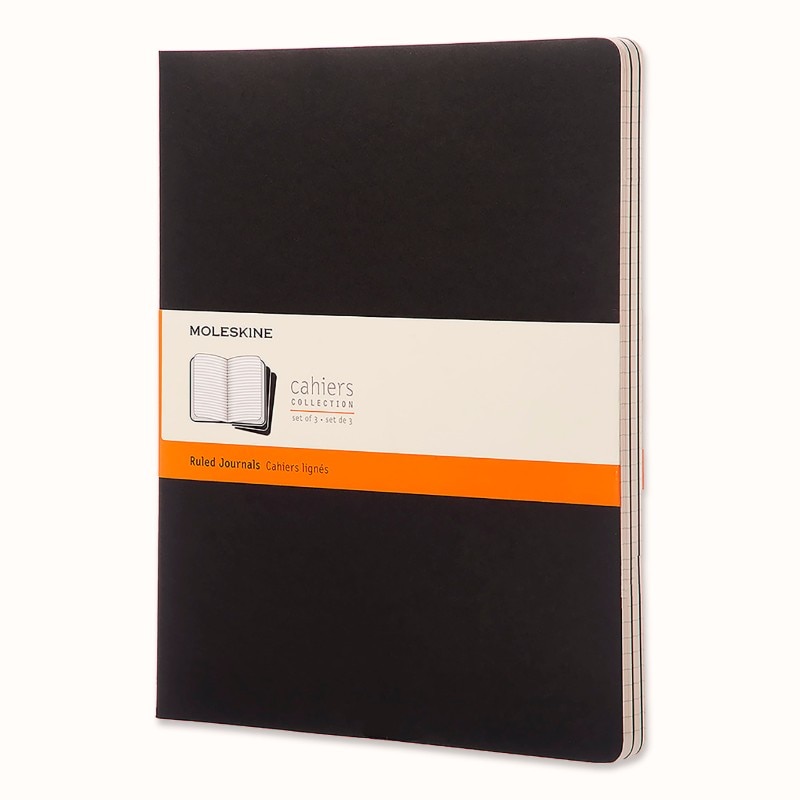
A pioneering device in this field is certainly reMarkable, an e-ink tablet designed to be “better than paper”, as its creators told Domus. Launched in 2016 by a Northern European start-up, designed to exploit the improvements of screens and Ink in a productive sense, whereas before they were mainly used as the electronic pages of ereaders, reMarkable started out as a niche idea, spread through word of mouth and powerful communication campaigns on Instagram, reaching hardware maturity with the second version (reMarkable 2, in 2020) and conquering users thanks to a very clever interface and sophisticated functions, which are constantly evolving.
What determined reMarkable’s success was above all its mimetic ability: the tablet gives users the comfortable tactile sensation of writing on paper—while offering all the flexibility and convenience of digital technology. In 2024, reMarkable introduced a new device, the Paper Pro, featuring a larger, color screen. However, it loses some of the magic of its predecessors, as we explained [here].
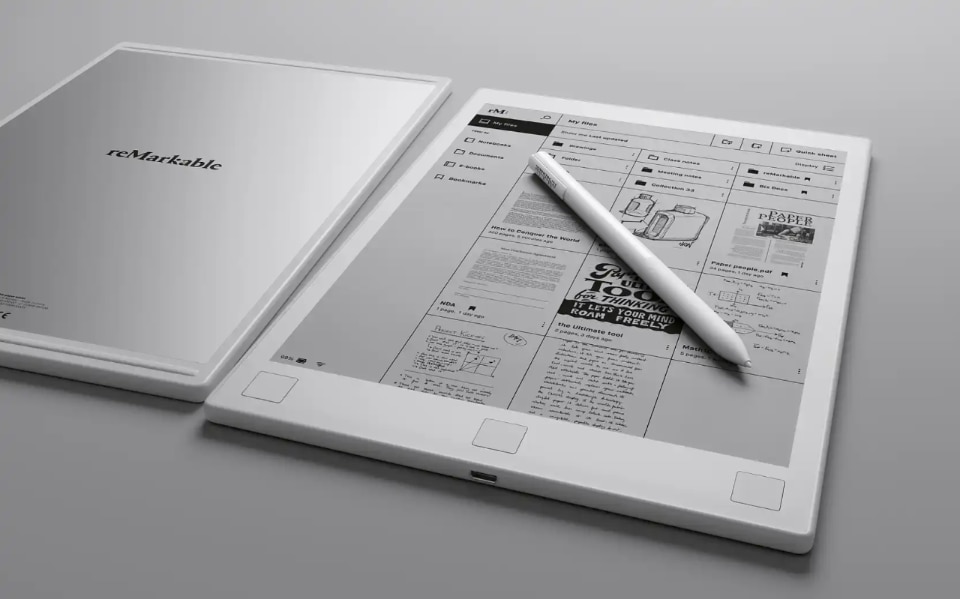
Many large tech companies have launched their own versions of a device that's similar to the reMarkable, such as Huawei’s MatePad Paper, or Scribe, a new version of Amazon’s Kindle with a large display and a pen (soon to be in color?). Some other companies specialise in this kind of device, such as Boox, the first to launch a digital pad with a colour E Ink screen. Supernote, on the other hand, relies heavily on interacting with the community and constantly updating with new features the software that powers its two devices, essentially the same product offered in two different sizes, A5 and A6.
To wrap this up, it is only right to circle back to the iPhone’s Note app, which is still an excellent option as a digital notepad, especially because it allows you to add sketches, text written from the keyboard and photos taken with the Apple smartphone’s powerful camera. Those who have most insisted on the possibility of transforming the smartphone into a modern digital pad is, however, Samsung, first with the Note series, and then with the extension of the S-Pen to the other flagship products, the Galaxy S and the foldable Z Flip and Fold.
Apple, for its part, has never introduced a stylus for the iPhone – “Who wants a stylus” is a famous statement by Steve Jobs – but it has done so for iPads, from the Mini to the Pro to the “normal” ones, turning them into sophisticated drawing devices thanks to the Apple Pencil, perfect for taking notes or drawing sketches or jotting down text by hand. A great contribution came for sure from third party apps, such as Notability or GoodNotes, now at its sixth major upgrade. GoodNotes 5 was among the best apps of 2022 for iPads according to Apple.
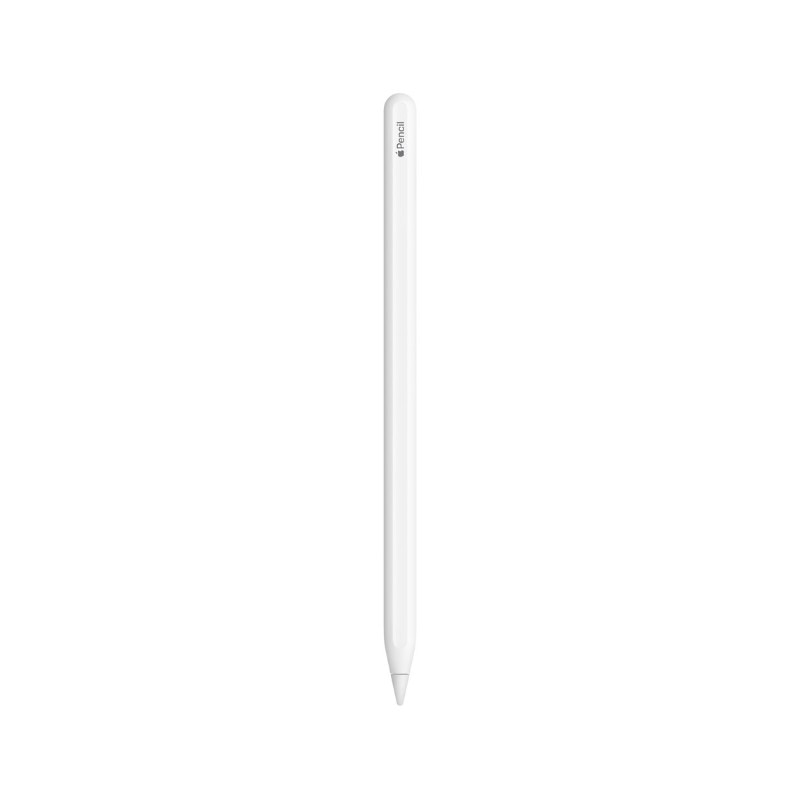
Supernote Nomad
Ratta, a standout in this category, has reimagined the “little one” of the Supernote family, introducing the all-new Nomad alongside its A5 flagship. With a 7.8-inch screen diagonal, it’s about the size of an A6. Think of the dimensions of the iPad and iPad Mini.
Nomad retains the same user-friendly interface as its larger sibling, although of course the user experience is inevitably different on a smaller device. The relative thickness of the device, which exceeds that of its direct competitor, the ReMarkable, poses a challenge on surfaces such as tables or desks. Acting as a step, it leaves users unsure of where to place their palm when writing or drawing. However, with some familiarity, these challenges are easily overcome. Other than that, our observations about the Supernote A5 X hold true, both in terms of merits and challenges. It has great potential, but presents a steep learning curve.

Supernote introduces three features with this model. First, it allows users to replace the battery, an environmentally friendly choice that extends the life of the device. The second feature is the innovative Feelwrite 2 film, an essential technology for replicating the feel of paper on a digital device. Described by Ratta as rough, self-repairing and anti-glare, it takes a few days of use – and thus “self-repairing” – to reach optimal performance. In the end, Supernote is a device you slowly fall in love with.
Ratta’s third innovation with the Nomad is a second touch bar on the left side of the screen, complementing the “classic” bar for quick access to the menu and simple functions. This new element allows users to undo or redo their last action and navigate between pages. For a device with a somewhat complex interface that is so focused on giving the user a wide range of options, a departure from ReMarkable’s minimalism, it may be interesting to see more customization options in the future. Along with the new device comes the Atelier application, designed specifically for those who use the tablet for drawing, marking Ratta’s second application after the one that allows reading Kindle books on the Supernote.
Nomad is a sleek, white device with a transparent back that reveals the internal components, vaguely reminiscent of Carl Pei’s Nothing aesthetic. Winner of the Gold Medal in the Product Design category at the German Design Awards for Stationery, it is not exactly pocket-sized, but offers greater portability compared to a 10-inch device. Nomad transforms into a versatile notepad that fits comfortably in a jacket pocket or small bag. It is sold with a selection of pens from Supernote, including one with a retractable tip, and Lamy. The Folio case has a slot for the pen, but lacks the magnetic attachment found in most competitors’ designs.
Kindle Scribe
Amazon returns to the XL format, already experimented with more than a decade ago with the Kindle DX and integrating a new pen-based notes function. The result is Scribe, a beautifully made device with a nice finish on the body and a great backlit display. Perhaps, one could have expected from the pen, which is a bit harsh-looking and features a very hard tip. The bezels are quite thin on three sides, while the thicker one on the left ensures a better grip.

Although well designed in terms of hardware, Scribe is disappointing in terms of software, which is extremely basic: there are few pre-installed page templates, few writing and drawing tools – just a pen, highlighter and eraser – and no copy-paste or zoom options. A half disaster, in short. What’s more, one cannot take notes directly by writing on book pages, as on Kobo’s direct competitor Elipsa, for example, but has to resort to virtual post-it notes, thus creating a layer that is not very user-friendly. Even underlining gets complicated with the stylus. Two things save it: the integration of the huge Kindle library on such a device and the fluidity of the stroke. You can draw and write as well as on reMarkable, with the bonus of the backlit display.
Staedtler’s Noris digital

Most digital pads based on electronic paper screens use an EMR stylus, an electromagnetic resonance technology patented by Wacom. However, many of the styluses that come with these devices are not very good or end up being lost. An excellent alternative is the one offered by Staedler, which has redesigned its most famous pencil for the digital notepad age, creating an excellent writing tool that is not overpriced. There is also a jumbo version with a digital eraser on top - and yes, it works.
reMarkable 2
Launched in 2020, it is still the best in the category. Find Domus’ interview with Chief Designer Officer, Mats Herding Solberg, here.
GoodNotes

For years, it has been the best application for taking notes or sketching an idea on the iPad. It features a variety of writing tools and makes the best of Apple's advanced tablet screens. It has a handwriting recognition system that allows quick searches within documents and the new version is free for the first 3 notebooks created. It’s quite useful for those who want to have everything on a single device, but it lacks something, especially when it comes to writing, also because the feel of the Apple Pencil on the screen is not that of a pen on paper: it is OK for drawing, a little less so for writing. Furthermore, the batteries of iPads, with which we do a lot of things, have to be recharged often, whereas a dedicated device will almost always be charged when needed.
Huawei
We tested Huawei's MatePad Paper as a travel journal: you can read how it went here.

Kobo Elipsa
Ramesh Mantha, Kobo VP, told Domus about the company’s new digital reader/writer, which allows you to take notes directly on the pages of books. however, it was not convincing in terms of responsiveness and pleasantness of the experience. The writing functionality is also present on the smaller Kobo Sage, which has an 8-inch screen.
Freeform

It is Apple's new app for sketching ideas or working together to build a project. Integrating writing, drawing, photos, and graphic elements, it works like a whiteboard and allows you to take notes, work on a brainstorm, build a moodboard or script, and is designed especially for creative people. It works best with an Apple Pencil, so it looks great on the iPad, and it puts collaboration between multiple people among its central assets. It is free and included in the latest iOS 16 update.
InfiniteBook

Among the many high-tech devices featured in this list, Infinitebook stands out not only as an exception, but also as a more affordable and “analog” solution in its own way. Essentially, it’s a spiral notebook that works on the same principle as a whiteboard. The concept was created in 2014 by a student who developed the idea of a notebook you can write in, erase, and reuse endlessly. A smartphone app—the digital component—allows you to digitize the pages before erasing them. Infinitebook is available in various sizes and paper types, along with a wide range of customizations, from a Wine Journal to a Frida Kahlo edition. Thanks to the spiral system, pages can be removed and rearranged. The basic kit, which includes the notebook, a special erasable marker, and a sponge, costs just a few euros.


